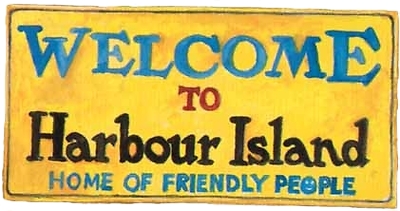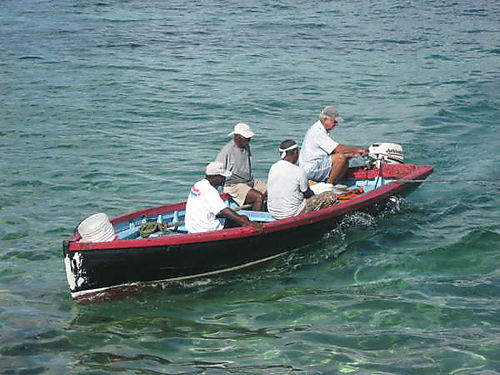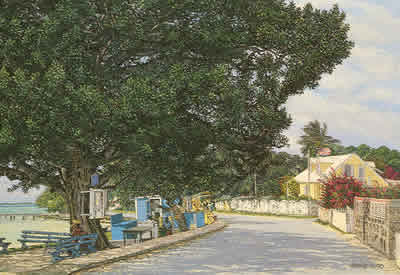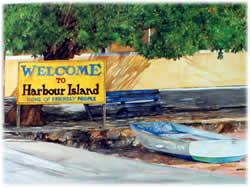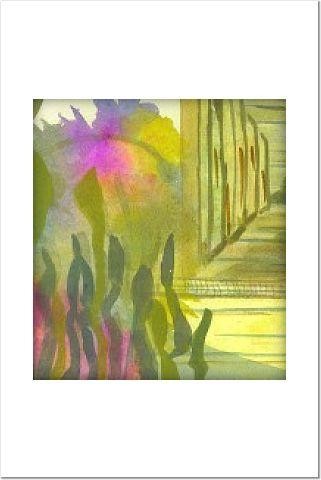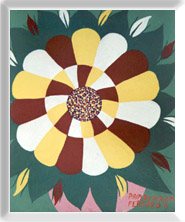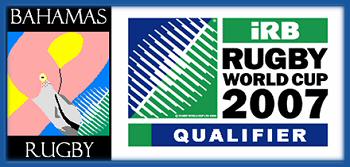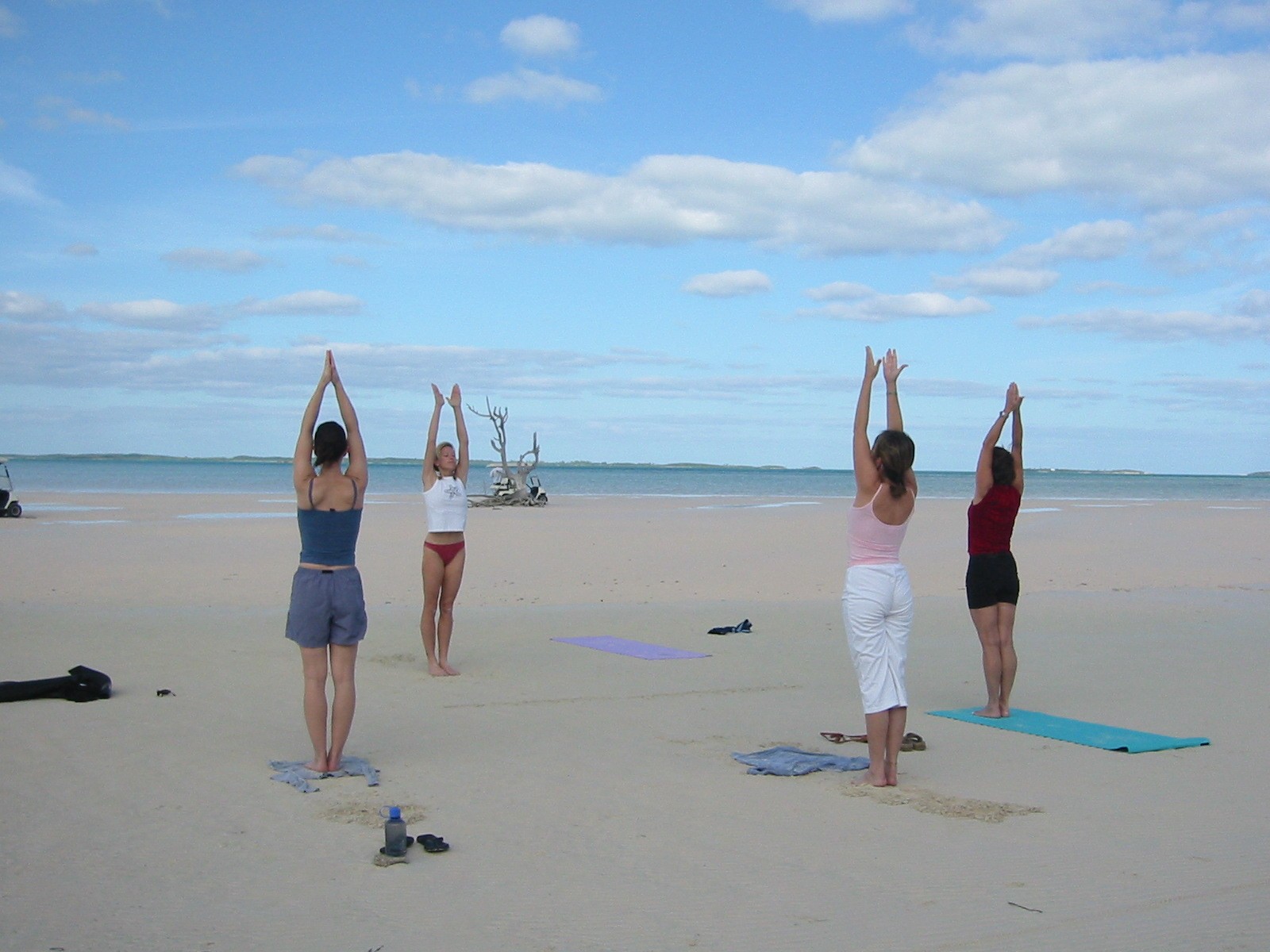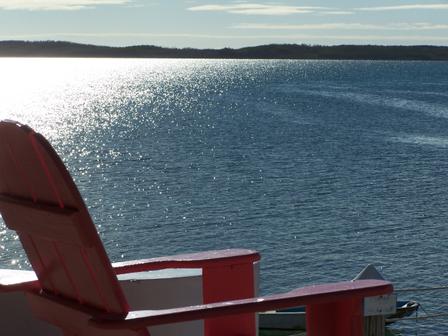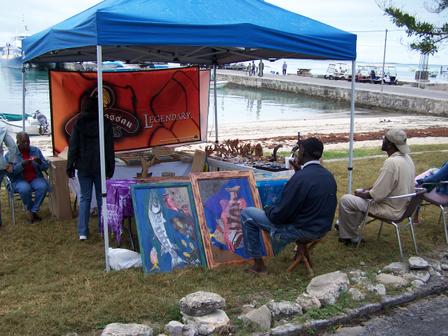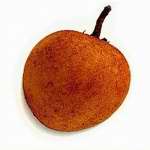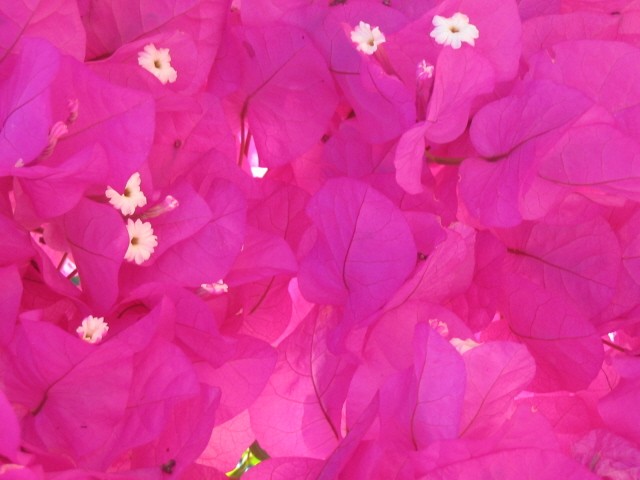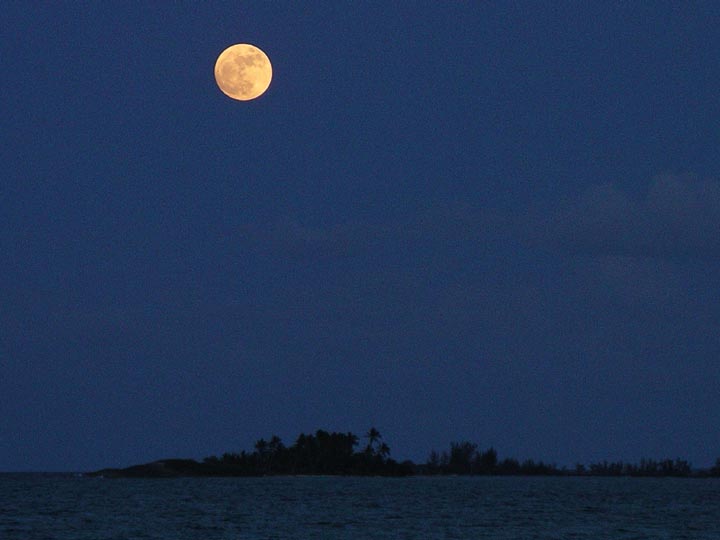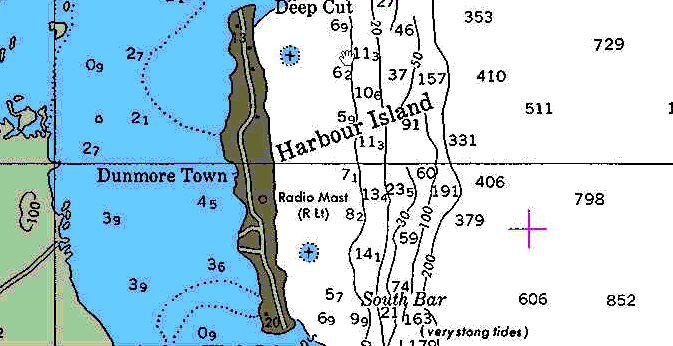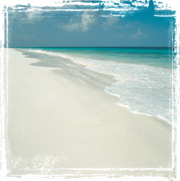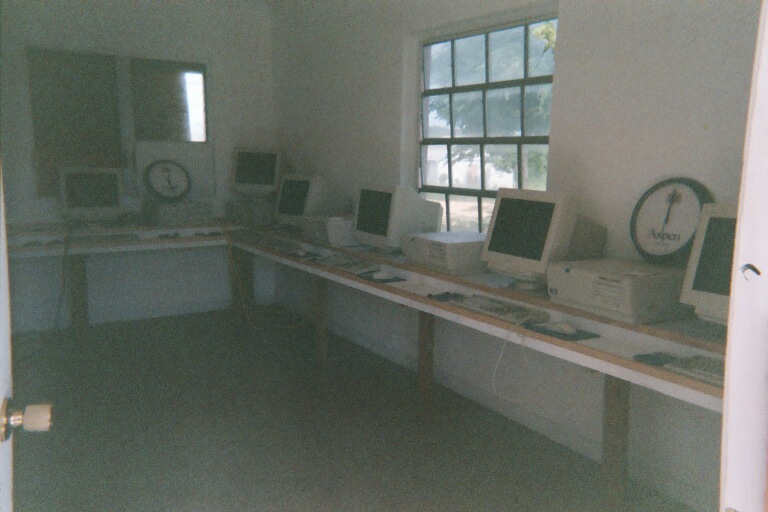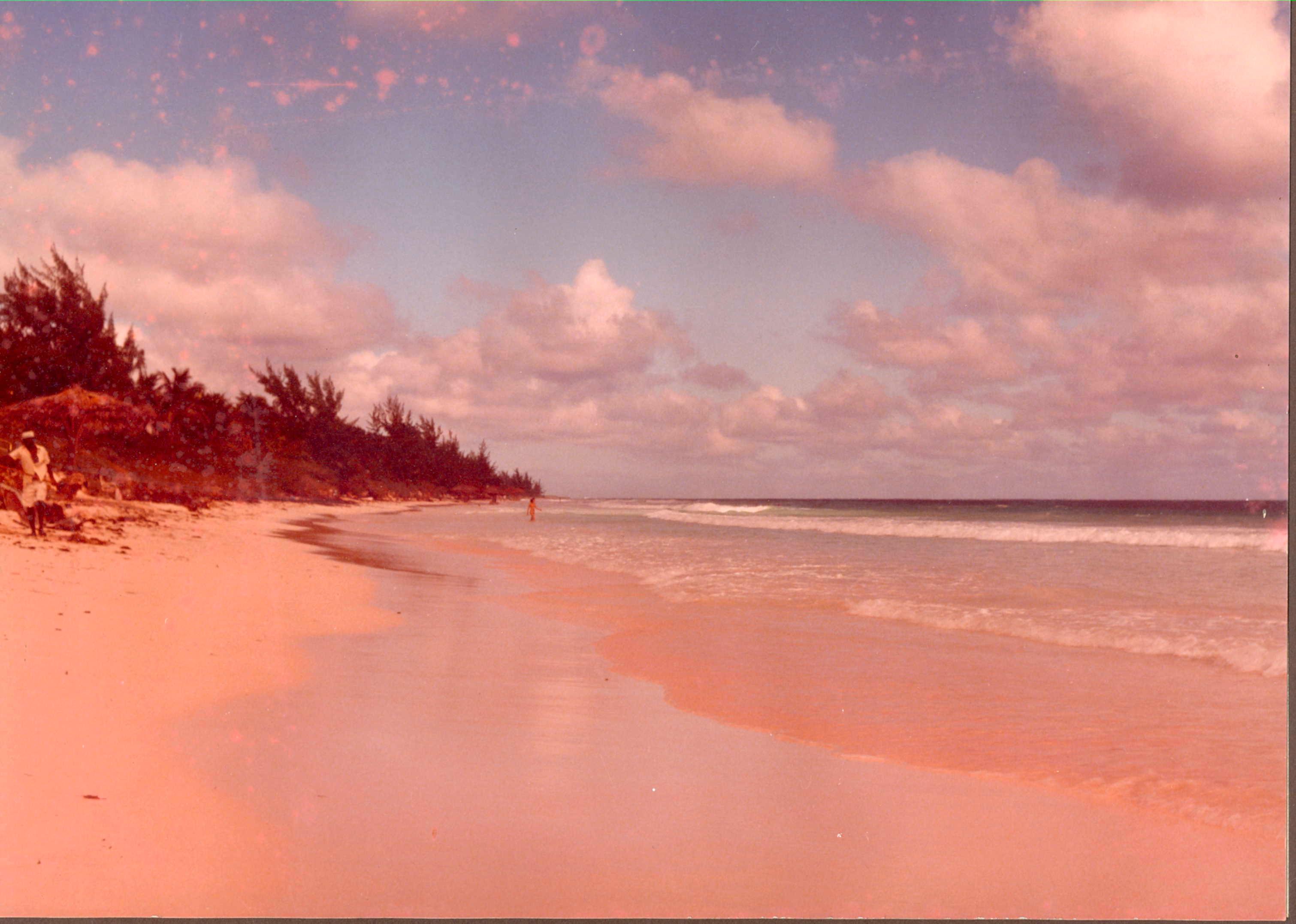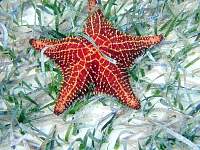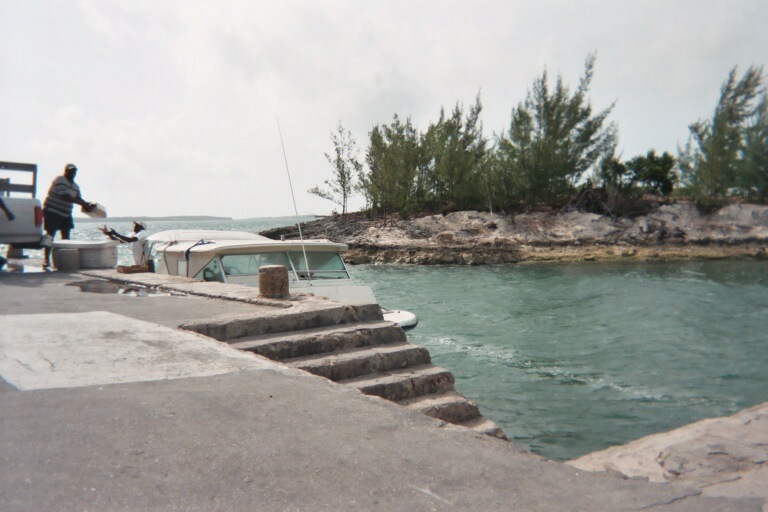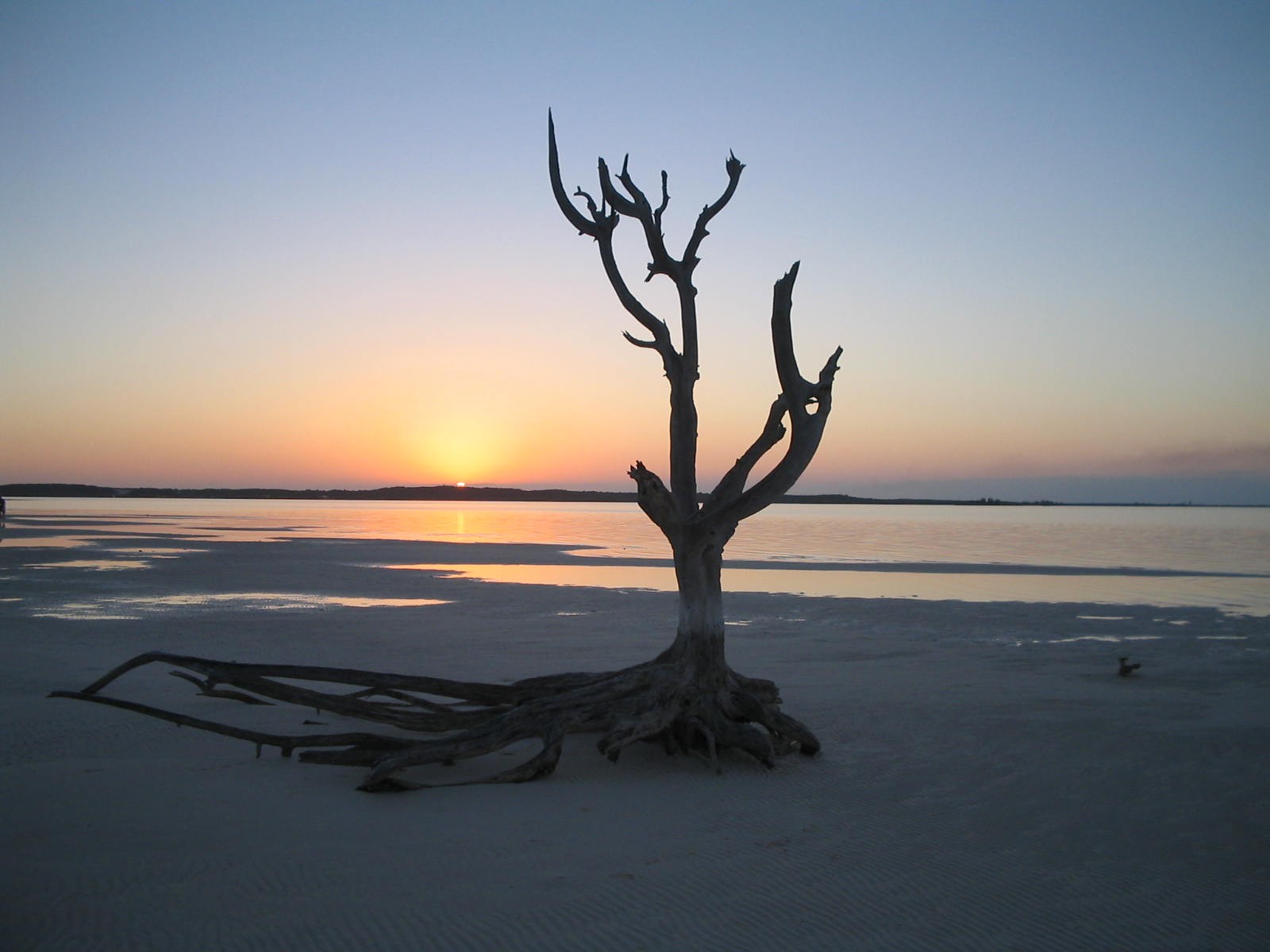Briland
News & Tales
Haulers Off Whale Point
UNDER THE FIG TREE
All Island Aid Frances 2004 U.S. Navy Base Education Centres
Briland.com
Behind the Scenes
Briland
News |
Briland
Tales |
|
| 'Dem
Bones, Dem Bones' The
Game They Play in Paradise Briland ArtsWalk December 2005 Fruit in season Sapodilla ... "dilly" Bahamian Independence From The United Kingdom 10 July 1973 |
Support Briland News & Fiction, located at www.briland.com. All fiction, news items, factual stories, artwork and photography submissions in .jpeg format for publication and posting at The Fig Tree can be sent to the Briland Modem via e-mail at info@briland.com.
Winslo Runs The Marathon
by Brock Peters
"Whew,
it's hot out," Winslo commented.
"You're doing great. Keep it up," said Kenneth, who acted as Winslo's
trainer in addition to being a handyman who worked for him.
"Only four more miles left, and I'm finished training for the day. Thank God," said Winslo, huffing and puffing.
"Only one week, Winslo. Only one week till you leave the Bahamas and head for Chicago for the marathon," emphasized Kenneth, driving in his pickup next to Winslo while giving him water as he ran. As Winslo once again ran around the perimeter of the four-mile island, his feet sank up to his ankles in sand and his legs felt like rubber. He was remembering the morning he picked up the paper and saw the ad for the Chicago Marathon, and how it inspired him to run in it.
"Winslo, you're crazy. You will never finish the race, mon," said a fellow islander. "Winslo, where you going to get the money to go, mon?" asked one of his close friends.
"Don't worry, mon. I've got the money." emphasized Winslo.
"What if you don't finish the race, mon? Then what do you do?" asked yet another islander.
"That's why I'm training hard. So I can finish the race. I know I've never run in any race before, but I have a dream and that dream is to run and finish that race," said Winslo confidently.
After finishing the training for the day he started thinking to himself. "Can I actually finish this 26-mile race? Maybe I should start training harder. Hey, I could use my old fanny pack and fill it with sand so it makes me work harder. I could also wear a long sleeve T-shirt to make me feel hotter so I work harder to build up my endurance."
*
* * *
"Last call for Bahamas Air. All passengers for Flight 357B8, please
board," said the lady over the loud speaker.
As Winslo boarded his plane, he wondered what he would do when he got to Chicago. He planned to arrive a few days early in order to relax before the race.
"Sir, would you like a newspaper?" asked the stewardess. "Why yes, I would," said Winslo.
As Winslo shifted through the newspaper, he recognized a picture of the Chicago Bulls and remembered that Brett Carlson, the person who was to meet him at O'Hare, was going to take him to the Bulls game Thursday night. It was something he wanted to do for a long time. He still wished Michael Jordan played on the team so he could finally see him. He really wanted to see him, because everybody mistook him for Michael Jordan. He was the same height as Jordan carried the same facial features but he didn't wear an earring like Mike.
*
* * * *
"Hey Winslo!" screamed a voice from a black SUV. It seemed to
be a dark-haired man in his mid 40's. Then it clicked.
"Hi Brett! How's it going?" hollered Winslo over the loud Chicago traffic.
"Great! How bout you?" asked Brett.
"Just a bit tired from the plane ride," said Winslo, still struggling to get across the street.
"Here, let me help you with that bag." said Brett, picking up the bag. "Don't worry, it's a short ride to the Maddox's house." said Brett.
*
* * * *
"Hi Winslo! Come on in. Hi Brett," said Karin Maddox.
"Karin, where should I put his bag?" asked Brett.
"Up the stairs and first room on the left." said Karin.
"Winslo, would you like something to eat or drink?" said Karin.
"I'll have just a water. Thank you." said Winslo.
"Winslo, would you like to go to Grant's hockey game tonight?" asked Karin. "You don't have to, but Grant would love to see you."
"Sure I'll go," said Winslo.
"You don't have to go if you don't want to," said Karin.
*
* * *
In order for Winslo to do the very best job, he had to have a good night's
rest. So he went into downtown Chicago to the Hilton that very next day.
In comparison to his home in the Bahamas, the hotel was very luxurious.
There were two queen size beds, a color TV with free HBO, and a steam shower.
After surveying the room Winslo went down stairs and bulked up on carbohydrates.
"Man, am I filled up with all that pasta," said Winslo humbly. "I think I'll just go up stairs, rest for a while, then get to bed early."
Winslo woke up that morning to a beautiful sunrise. He was feeling refreshed and nervous about the race. He had planned for a long time for this day, and was ready to race his heart out until it stopped beating.
Winslo walked from his hotel to the starting line, visualizing the race and him running in it. When he got there, he was surprised at how many people were actually running in this race. There were men and women of all races, sizes and shapes waiting for the same moment -- the start of the race.
"Crack" went the starting gun as the race started. Winslo was having a tough time maneuvering through the large crowd of 35,000 people.
"Man, I never noticed how many people were actually running in this race," said Winslo as he tried to weave through the hordes of people. As Winslo ran through Chicago he noticed his environment around him. "Wow, these skyscrapers are huge. They make me feel like a tiny little ant," he said to himself.
As Winslo passed the 6-mile marker he saw some people holding up signs that said "Run Winslo Run" and "Go Bahamas" or "Keep It Up, Winslo."
"Hey look, it's the Maddox and Carlson family," said Winslo who was running out of breath.
"Look mom, it's Winslo … there he is." said Brock. "
"Hurry up kids, hop in the car so we can go to the next mile marker," said Karin, who was trying to rush the kids into the car. As Winslo ran, he noticed the Maddox and Carlson family's cars driving next to him while he was running. Seeing his friends gave him lots of energy and hope.
As Winslo approached the halfway point, he felt the urge to go to the bathroom. When he got to the halfway point, he searched for a port-o-potty. After he used the bathroom, his legs began to cramp up. As a result, it took him a lot longer to get running again at the same pace he was at when he started.
"Mom, where is he?" asked Brock with concern.
"I don't know. Maybe he is just resting, or maybe he is hurt." said Karin in desperation.
"Mom, I'm getting tired of standing here," said Brock.
"Don't worry. He should be here any minute. Hopefully." said Karin.
"That's what you said five minutes ago." said Brock.
"Okay Brock, I'm getting worried too. I'm going to head down to the halfway point to see if he is hurt," said Karin.
"Mom, here he comes! There he is. Yeah, Winslo! Keep up the good work," screamed Brock enthusiastically.
As Winslo approached the 24.3-mile marker, it came evident to him that it was going to be tough for him to get to the finish line even if it was only two miles till the end.
"I've come all this way from all the training and the long days working to get the money to come here. I'm not ready to give up now, and besides it's only two miles. That's not that far," said Winslo with determination.
As Winslo thought this out loud, he started to speed up and pass the other racers in front of him with determination and power. In just a few minutes -- actually nine -- he was at the finish line.
As Winslo finished the race, he said one last thing before he collapsed. "Anything can be done when you put your heart, soul, and mind to it," said Winslo with power in his voice.
Brock
Maddox
Madds1043@aol.com
About
the author:
Brock Peters is an 8th grader at the Wilmette Junior High School, a suburb
of Chicago. His recent school assignment was to develop a short story
that illustrated a conflict, such as man against man, man against nature
or man against himself. He felt that Brilander Winslo Barry's struggle
to achieve his "marathon goal" of running in the Chicago Marathon
illustrated all three conflicts. Brock was very impressed with Winslo's
ability to set a high goal for himself and have the self-motivation to
follow through with it. Brock hasn't yet received a grade on the paper,
but the story has been well-received by all those who have read it.
A
Bahamian Bedtime Story
By Dr. Ralph Emery
Thirty five years ago this week my grandfather took our family on a Windjammer-style cruise through the Central Bahamas. He had recently turned 65, and the cruise was a retirement celebration. Our party consisted of himself and my grandmother, my mother, my younger brother, and me (age 15 at the time). Originating in Nassau, we visited the Exumas and Eleuthera, finally returning to Nassau to rendezvous with my father who had passed up the cruise due to his profound tendency to seasickness.
The vessel was a large sailing catamaran, the Tropic Rover. She was perhaps 150 feet in length with a huge beam, probably 50 feet. She carried 50 passengers and a crew of ten, skippered by the very knowledgeable and affable Syd Hartshorne. The passengers seemed to gravitate into two groups of roughly equal size, the "Idlers" and the "Wilders". The Idlers included families, retirees, and a few odd gentlefolk. The Wilders were the party animals. The would stumble out of their bunks late in the morning, grumble about having missed breakfast, and slowly gain momentum through the evening meal and on into the night, when they would noisily drink and sing bawdy calypso songs at the ship's semicircular bar into the wee hours, much to the dismay of the Idlers. The ship carried two tenders, and we would make day trips to wonderful beaches and islets and small communities. While we explored and snorkeled and fished, the Wilders would find the nearest "yacht club" and boisterously party, much to the chagrin of the shy locals.
One beautiful Sunday morning found us reaching along Eleuthera's western shore. Late in the day we anchored off Governor's Harbour. The Wilders immediately clamored for a shore party, but the Captain told the group that the cook was preparing a special Sunday meal (prime rib) and that we would be staying aboard that night. When pressed by the rowdies, Captain Syd explained that the locals were quite religious, that they spent all day Sunday in church and devotional pursuits, that none of the restaurants, etc., would be open, and that we would go ashore in the morning. The Wilders adjourned to the ship's bar, and after an hour of furious drinking two of them donned fins, jumped ship, and swam to the government dock. They returned a short time later in a small outboard with two local men, explaining that a tavern owner had been persuaded to open at sundown, and that we were all invited. A band had even been found. The captain expressed some doubts, but after discussing the matter with the two young black men, and at the manic urging of the party animals, he reluctantly agreed to lower one of the tenders for an 8 o'clock shore party.
Ordinarily
our little group would not have participated in such an outing, but while
we were watching the two Wilders swim ashore my grandfather spied what appeared
to be a US military Jeep with a crew of four. He later inquired of the two
Bahamians, and they confirmed that there was indeed some sort of "satellite
base" on Eleuthera, security for which was provided by US Navy Shore
Patrol. This intrigued my grandfather as he was ex-Navy, and he decided
that we should go ashore with the others and perhaps have an opportunity
to meet the sailors.
The tavern was a small two story affair, but a large patio/dance floor in
a garden setting behind the building accommodated our group. The band consisted
of two members, a guy with congas and another with an electric guitar and
an amplifier the size of the ship's freezer. They plugged microphones into
the amp, thus broadcasting a cacophonous off-key blend of profane calypso/rock
throughout the entire community. The Wilders were at their worst behavior
of the trip, and my brother and I were getting our first look at "The
Gator" when our mother firmly yanked us away from the dance floor.
The party seemed to quickly end, and we found ourselves out on the street
drifting toward the dock where the tender was supposed to meet us.
Sharing the street with us was a small group of locals, men and teenagers, who were obviously displeased. As we began to hurry toward the dock, other men appeared around us, none speaking, all dark and serious. We reached the dock only to discover the tender hadn't arrived; we were a few minutes early. I heard my grandmother's voice, "Daddy, they're picking up rocks!" Indeed, the locals were gathering stones, pieces of wood, things that were obviously weapons. It looked pretty ugly for us.
Suddenly the Navy Jeep with its crew of four came screeching around a corner. The Jeep was quite old, but impressively carried a WWII vintage 50 cal. air-cooled machine gun. The Petty Officer in charge wore a .45 on his hip; we saw no other weapons. Several of the Wilders pathetically beseeched the sailors to "Save us from the mob!" The Petty Officer asked for quiet, then queried, "Did all you people come off that British sailboat anchored out in the harbour." Several responded that we were indeed Americans who just happened to be vacationing on an American boat the just happened to have UK registry. The Petty Officer replied, "I"m sorry, you're British subjects on British soil, we can't help you." The crowd edged closer.
It was my grandmother's habit to wear a large straw hat when we were in the tropics. I heard my grandfather take a deep breath, then he snatched the hat from her head and addressed our crowd in a low, firm voice. "Everybody empty your wallets into this hat, NOW. I want watches, jewelry, anything of value. Do it quickly!" No one hesitated. In short order the hat was filled with paper money, change, bracelets, earrings, the works. He carried the hat to the Jeep and spoke. "Petty Officer," he exclaimed, "I served aboard the USS Pennsylvania in World War One. Several of these men are veterans as well." He offered the hat to the Petty Officer and hissed, "Take this and get us out of this jam." The Petty Officer looked at what must have been hundreds of dollars, then turned to a crewman. "Mr. Grim," he barked, "Rack the Fifty!" A sailor jumped to the gun, leveled it just above the heads of the group of locals, pulled back a large lever on the side the gun which made an impressive metallic CRACK, and no one moved. After what seemed like an eternity, the locals slowly dispersed. Within a moment or so, the tender arrived and we were so on our way back to the ship.
It was a quiet ride. After a time two of the Wilders approached my grandfather and thanked him for managing the situation. He nodded and then smiled, "Hell of a bluff, wasn't it?" My mother, who had up until then been in shock, blurted, "What.?" My grandfather gently responded, "The machine gun, there was no ammo belt, it was empty, I'll bet it hasn't worked in years." Even in the darkness I could see the color drain from her face.
Back at the ship, Captain Syd gathered the party into the salon and sternly addressed us. "I think we all learned an important lesson tonight. This isn't America, customs here are different, and we all need to remember to honor and respect those differences. We're guests here, and it's nothing more than good great luck that the Navy rescued you. And we all owe a big 'Thanks' to our friend from the Pennsylvania." My grandfather stood to hearty applause, and thanked to crowd. The Captain concluded, "I'm ordering the bar closed for the rest of the night. I suggest we all turn in and start over in the morning." There was no dissent.
A short time later, as I lay in my bunk, I heard my brother's voice. "Are you awake?" he asked. "Yeah, I can't sleep." He paused, then, "When I grow up, I want to be just like Grandpa."
So do I, I thought, so do I.
The
Fig Tree Done Come
Hey, yinna --
On Thursday 14 December 2000, an approximately 20-foot tall fig tree was
planted at the exact same spot where the old 400-year-old fig tree once
proudly stood at the bayfront beside the Government Dock. The old fig tree
had been the meeting center of town for centuries, but was unfortunately
caught in the tornados and storm surge of Hurricane Floyd in September of
1999.
The new site is being carefully-cultivated -- thanks to Hartman Saunders -- and continually watered -- thanks to the Harbour Lounge -- to make sure that the newly planted roots "take" to its new site of honour. Thank you to Jill Curry Lorey of Harbour Island Realty for spearheading the logistics of the project, a HUGE thank you to the two anonymous tree donors who made such a gift possible, thanks to the Briland Modem for promoting the effort, thank you to members of local government for making everything happen on schedule ... and a heartfelt thank you goes out to the generous supporters of the Briland Modem Fund both on and off the island who ensured that the project was well-funded. We'll have pictures up on the site as quickly as can be arranged.
Eleven
days 'til Junkanoo --
The Fig Tree Team
Briland
Fire Brigade
By Robert Arthur, Arthur's Bakery
Were you here on that terrible night of March 6, 1999, when the explosion
and fire destroyed Valentine's Yacht Club's Dive Center?
You jumped out of bed, heart pounding, and raced down to the scene .
and what you saw filled your heart with dread. The local fire brigade volunteers
had quickly brought our 25-year-old fire truck to the scene, but the pump
wasn't working, and the hoses weren't well sealed. Water was squirting everywhere
except toward the fire. There had been no rains for months, and everything
on the entire island was tinder-dry. The entire town held its collective
breath as the building flames leapt from the dive shop to the tree of the
Albury family home next door. It then occurred to a number of us that the
Club's major fuel storage tank had not yet blown up. [We all remembered
having seen a film in high school that described the kind of mushroom cloud
you get when a large fuel tank blows. Where was the tank? Had its shut-off
valves been properly closed the night
before?] As various objects - SCUBA tanks, compression equipment --
in the dive shop began to explode, a number of people began to back away
from the scene. One family of renters in particular headed back to their
guest house to assemble emergency supplies so that they could evacuate the
island. They wanted to be prepared to wade out into the bay in case the
whole village went up in flames.
You know the end of the story. Through the grace of God, the wind shifted
to blow out toward the harbour, and the volunteers were able to use the
contents of the swimming pool to extinguish the fire. The very next day,
the sickly smell of smoke pervaded Dunmore Town, but the fire was out, and
no one was hurt.
Next time, will we be so lucky?
The question has continued to gnaw at many of us ever since that terrible
evening. Since the Valentine's event, we have upgraded the water system
and installed a network of new fire hydrants at various points around the
island as a start at protecting ourselves. But what we could really use
is a new fire truck that can store 700-1000 gallons of water, pump water
from the sea as easily as it can from the street hydrants, and hold the
tools and equipment needed to fight a two-storey building fire. We'd like
to have a fire truck in place that will have mechanical parts available
when we need them, and that can easily maneuver the narrow streets as well
as the unpaved roads of Harbour Island.
Did you know that our major insurers have listed Harbour Island as a
Classification A insurance risk, 'A' being the worst and most costly classification?
Thanks to the high concentration of home ownership we currently enjoy,
but with no thanks to our lack of access to adequate fire protection today,
our fire insurance premiums are among the region's most expensive. In the
meantime, a committee of fire-fighting professionals, local government,
volunteers, and friends has researched the special needs of island fire-fighting,
and is building a budget designed to support everything needed for a sophisticated
fire system that the island can depend on. At this very moment, fire truck
agents in the U.S. are searching for a used engine to meet those needs,
which we expect it to cost approximately $120,000. We've estimated another
$15,000 annually for fuel and operating expenses, and another $3-5,000 to
renovate and maintain a firehouse to secure the truck. We look forward to
your assistance in raising the $140,000 necessary.
With the backing of the Harbour Island Police Department, a trained volunteer
fire brigade will run the truck as led by Fire Captain Jefferson Johnson.
The proposed budget will not only set aside appropriate compensation for
Jefferson, but will also include a small monthly stipend for the members
of the volunteer brigade. All members of the brigade will be outfitted with
VHF/CB radio communications equipment, so that response time will be effectively
minimized.
We'd love to have your support moving forward with this effort. Can you
help? If you are on-island, we'd be delighted to have you bring your check
into the Royal Bank of Canada in person and meet with Bank Manager Keith
Wells. You'll be able to see the fire truck the All-Age schoolchildren have
drawn to help us track our progress.
If you're currently off the island, but indeed want to offer your support
to this necessary initiative, we invite you to mail or wire your contributions
to the Briland Modem Fund, Bank of America Account No. 2173408237, ABA Wire
No. 12100035-8, 10153 Riverside Drive, Suite 244,
Toluca Lake CA 91602, Tel [outside of California] 1 800 441 6457 [press
* for an operator]
or [inside California] 818 507 6700 [press * for an operator].
Please note on the check that your donation is being earmarked for the Fire
Brigade Fund. Your donation to the Briland Modem Fund is tax-deductible,
as the Fund is a recognized 501©(3) not-for-profit corporation. A monthly
statement listing all activities on the Fire Fund Account will be available
at the Royal Bank of Canada, and can be viewed online at the Briland Modem
located at www.briland.com.
You'll keep abreast of the committee's progress.
There isn't much that we can do to further protect ourselves from hurricanes,
but a working fire truck will go a long way toward protecting us from nature's
other major threat. Your support will help us all sleep better at night
knowing that the protection we need for all of our homes and businesses
is now available. And best of all, we'll continue to enjoy the peace and
beauty of Harbour Island, this unique and irreplaceable jewel where people
of so many lands feel at home.
Best regards,
Robert Arthur, Arthur's Bakery
Jefferson Johnson, Harbour Island Fire Brigade
Keith Wells, Royal Bank of Canada
Briland
Family Reunion: July 2000
By Mandy Bolen
Citizen Staff Writer
The
Bahamian roots of Key West were personalized over the weekend when more
than 200 descendants of Harbour Island residents converged in town for the
annual Harbour Island Family Reunion Picnic.
Harbour Island, which sits at the tip of Eleuthera, Bahamas, was the home
to many families that eventually migrated to Key West. Those families and
their descendants became the earliest residents of Key West's Bahama Village,
and many of those surnames can now be found on both Harbour Island and Key
West.
Norma Jean Sawyer, one such descendant, can trace her ancestry back to the
Bahamian settlement that is one of the oldest in the chain of islands. She
acted as hostess for the hundreds of visitors who share an island heritage.
The annual reunion picnic brings together people from all over the country
who can trace their ancestors back to Harbour Island, and has been held
in Miami, Tampa, New York and Canada.
"But this was the first time in its 24 years that the reunion was in
Key West," Sawyer said, while rattling off locally known family names
that are mirrored in the Bahamas. "All the streets in Harbour Island
are the same family names as in Key West."
The Sweetings, the Johnsons, the Majors, the Sawyers and the Careys - all
are names that can still be found on Harbour Island, where everyone knows
everyone else. Even the island's guide books refer to Harbour Island as
the home of the "friendliest people."
The descendants of those friendly people shared a traditional Bahamian picnic
Saturday at Sonny McCoy Indigenous Park, where a guava duff pastry dessert
was brought directly from the islands, along with the popular pineapple
coconut pastry.
"It was wonderful," Sawyer said. "I meet new people every
year."
This year's attendees included Hansel McGee, who came from the Bronx, N.Y.,
where he is a state Supreme Court justice, as well as Leanore Higgs, the
oldest living Harbour Island descendant at 98 years old.
The group also was proud to welcome Theresa Manuel to the reunion.
Manuel was the first Floridian to ever compete in the Olympics. She competed
for the U.S. Olympic Track Team in 1948.
The
Game They Play in Paradise
By Mike D'Orso
There were some things I knew I would find when I landed for a winter weekend on the island of Eleuthera. Bad roads and beautiful beaches. Pink sand and pineapple rum. Balmy breezes, a Bahamian sun and blessed solitude. But nothing had prepared me for Hitler. Nor was I ready for his museum. And I had no idea what to make of his basketball court.
It was a week before Christmas, and I had come to the Bahamas on a free ticket - a major airline reward for yielding my seat on an over-booked flight earlier in the year. I had chosen Eleuthera on a hunch. I knew it was one of the country's Out Islands - a far cry from glitzy Nassau. The guidebooks told me it was a little more that a speck on the map. A sliver of coral and limestone 100 miles long and two miles wide. Brochures described bougainvillea and hibiscus bushes drooping over picket fences, palm trees lining dirt paths to un-peopled beaches, small, neat homes painted on the bright colors of fruit and looking out on a translucent turquoise sea. This is what I had hoped for, and this is what I found when I stepped off a water taxi onto the dock at Harbour Island, a three- by one-half-mile dot three miles east of the northern tip of Eleuthera.
The 1,500 people who inhabit this oasis call it Briland. The adult's fish for lobster, conch and grouper, work at half a dozen small resorts along the beaches or commute to the main island to plant and pick in Eleuthera's pineapple and orange groves. The children attend the island's single 300-student school.
The schoolyard was empty when I arrived late on a Friday afternoon. Christmas lights were strung on the palms, and poincianas lined the narrow lane that runs past the school's sandy front yard. Reggae versions of Jingle Bells,and The First Noel drifted from the open windows of the houses nearby. A beat-up van sputtered past me with the words REGGIE'S "NO PROBLEM" taxi written on the side.
I noticed a purple Los Angeles Laker plate fastened to Reggie's rear bumper just above the Bahamas tag. I soon noticed that almost every vehicle on the island bore the Laker logo, in honor, I learned, of the Bahamian patron saint of basketball, Mychal Thompson. Thompson, whose nickname in his native Nassau is Sweet Bells, was the first native from these islands to make it to the NBA, and he spent the last third of his 12-year career playing for the Los Angeles Lakers. He is now a Seattle SuperSonic radio color commentator.
"Sweet Bells", explained an elderly shopkeeper, "made the Lakers the word of God in the Bahamas."
I saw a few Boston plates as well, and was told there had been a surge in Celtic green since Rick Fox - who also cut his basketball teeth in Nassau before moving to Indiana to finish high school and going to North Carolina at the Chapel Hill for college-became a guard with the Celts last season.
"It's a small country, yeah." Briland school basketball coach Clayton Johnston, a 32-year old transplanted Canadian, told me when I tracked him down in his tiny office. "But the kids here live on the basketball court. This game is their passion, their absolute passion."
Most play it outdoors. Johnston's kids - the boys and girls who wear the Briland Buccaneer jerseys when playing against Eleuthera's Windermere Warriors, hatchet Bay Potcakes (potcake is Bahamian slang for a junkyard dog) or Governor's Harbour Rude Boys - practice on an asphalt court a hundred yards from the Atlantic. When the Buccaneers host a visiting team, the game is usually played under the stars, on that lighted court with a third of the island's population seated on the grass or sand. Occasionally a rooster will dash out of the darkness and interrupt a fast break.
There are only four indoor gymnasiums in the entire country, according to Johnston. One is in Freeport, and three are in Nassau, where Gladstone (Moon) McPhee, the Red Auerbach of the Bahamas, coaches the national team. When college scouts from the U.S. come to the islands, they rarely venture beyond those gyms. It was in Nassau that the scouts found Thompson. And it was there that they more recently came across Dexter Cambridge, who grew up in Hatchet Bay on Eleuthera. Cambridge became the U.S.'s leading junior college scorer at Lon Morris J.C. in Jacksonville, Texas, in 1989-90. He then transferred to the University of Texas, where he led the Longhorns in scoring and rebounding early last season before being suspended for two months by the NCAA for accepting money from a booster while at Lon Morris. He is now with the Dallas Mavericks.
"Dexter's good, but we've got a dozen Dexters around here," said Johnston, who is a pretty fair athlete himself. He rowed varsity crew and played intramural hockey and football at the University of Toronto and is a member of the Eleuthera volleyball team. He came to Briland in 1987 after answering a Toronto newspaper ad for teachers in the Caribbean. "I'd already applied for a job in the Arctic," he said, "but this sounded better."
Johnston teaches several subjects and coaches every sport at the school, from softball to volleyball to track and field. But basketball, he said, is king. Both his boys' and girls' teams were undefeated in regular-season play last year - perhaps inspired by the 15-seat van donated to Briland's sports teams the previous summer by singer/songwriter/author Jimmy Buffett, a regular visitor to the island.
"He heard we had a problem," Johnston said. "He wanted to do something to help - quietly, you know. No big deal." A Briland team road trip - which always begins by boat - often ended with no transportation waiting on the other side of the water. Now the van sits parked by the dock on Eleuthera.
Most Brilanders - including such local basketball legends as Marty Saunders, who, Johnston told me, "schooled Dexter every time they played, absolutely schooled him" - rarely leave the island once they finish school. Some quit early, as Saunders did after 10th grade. "A lot of these kids leave school earlier than that," said Johnston, to go pump gas or carry bricks." Some, according to Briland police chief Ellis Miller, are eventually done in by drugs, notably cocaine. "A lot of cocaine comes through here," said Miller, "and some of it stays." But the main reason most Brilanders never move beyond their small island is the same reason so many tourists come to visit it. "Look around," said Johnston. "This is paradise. And this is home to these people."
The Friday I arrived - and that Saturday and Sunday as well - as the sun sank below the coral-colored horizon, the throbbing beat of steel drums and Reggae rose from a tiny courtyard at the center of the island. A sign nailed by the courtyard's doorway read VIC-HUM CLUB AND MUSEUM. Inside its banana-yellow walls, under an open sky and the fronds of over-hanging palm trees, I found six boys going three-on-three on a half court no larger than a living room. Its surface was a checkerboard of black and white ceramic squares. By nightfall the floor would become a disco, drawing dozens of locals and a handful of tourists.
But now those tiles were splashed with sweat from the basketball players. The players were teens - some students at the Briland school, others already dropouts. One, a slender 16-year-old who told me he was not good enough to make the Buccaneers, cradled an alley-oop pass and threw down a vicious dunk. he then disappeared through a doorway into the "museum" for a soft drink.
There was a pool table inside, surrounded by walls plastered with ragged 1960s record album covers (Janis Joplin, Tom Jones, James Brown, Marvin Gaye) and with vintage posters and photos of American athletes (Magic Johnson, Marvin Hagler, Jackie Robinson) as well as a life-sized foldout of Michael Jordan. A Bulls-Knicks game was on the television. Behind the bar stood a man called Hitler.
His name is really Humphrey Percentie Jr., but everyone on the island knows him as Hitler. Locals say the name comes from the fact that everyone knows not to mess with him. He reminds me of a downsized James Earl Jones, clad in a khaki jumpsuit. He filled me in on Briland's political history (in a nutshell, there is none) as he poured drinks.
Other than the school's, his key-sized court is the only basketball arena on the island, and it stays busy every day. I wanted to ask Hitler why he had built it in the center of his patio, but he wasn't interested in answering questions. Instead, he insisted that I guess the circumference of the coconut he keeps on a shelf behind the bar.
"It is allegedly - allegedly I remind you - the largest coconut in the known world, mon," he said, setting the coconut on the counter as he popped open two bottles of a Bahamian beer called Kalik.
It was a big coconut. About the size of a basketball. I pointed this out to Hitler, but he was busy shooing the kids off his court and setting up the sound system for the evening crowd that was already drifting through the door.
That pattern was repeated the next two days - raw, above-the-rim afternoon jam sessions played to a pulsing Reggae beat, followed by a night of dancing beneath the moon. I never got to see the Briland Buccaneers in action - they had an away game at nearby Spanish Wells that weekend. But on Monday afternoon I did see the Jimmy Buffett van, parked near the weathered taxis that met me and the other tourists headed to the North Eleuthera airport for our flight back to the U.S.
As the plane climbed and banked over the shimmering water of Harbour Island, I hoped for a glimpse of Hitler's court of the schoolyard. But all I could see were palm trees, pink sand and the fishing boats.
Mike D'Orso lives in Norfolk, Virginia and has written a number of stories for Sports Illustrated.
Hatchet Bay Community Computer Centre
Briland Fiction
'Dem
Bones, Dem Bones'
by Ken Smith, January 2000
I
thought nothing could match the fury of a big striped bass in the surf -
until I slugged it out with a bonefish in ankle deep water. [Now there's
a new kid on the block.] "Oh no, no Mr. Ken, you catch de Bonefish
by de head, not de tail. Dem fish be long gone now."
I was in deep trouble. My guide had just spent half an hour finessing us
into position with two beautiful fish, and my very first cast spooked them
as sure as if I'd been throwing stones. He was smiling, but I knew that
look. He was thinking he had aboard the biggest klutz that ever picked up
a rod and reel - and as a matter of fact, so was I.
It was 6:30 of the morning I was scheduled to fly back to New York and logically,
I should have been packing my bags. Instead, I was standing in a 15 foot
boat being "poled" across the great salt water flats between Eleuthera and
Harbour Islands in the Bahamas. I was looking for the elusive bonefish,
the "white fox" of the Caribbean ... and logic could wait for New York.
Less than three hours by jet from Times Square, it was hard for me to imagine
a more beautiful place anywhere on Earth. Whatever Mother Nature had left
after creating the Garden of Eden she gave to the Bahamas. Warm, gin clear
water, dense, green foliage and dazzling sunshine blend perfectly to create
a soothing, tropical seduction. No need for embellishment, I called it simply,
paradise.
There was about 15 inches of water on the flats that morning and a two to
three knot tide kept them very busy. Needless to say, our keel did more
than a little landscaping as we crunched along. Our outboard was out of
it. Tilted up and locked, our only means of propulsion was a twelve foot
"pushing pole" manned by my guide, Stanley Johnson.
What a find this man was. Twenty-six years on the flats earned him the name
of "The Man" to bonefish with and I was lucky to have him. Only the day
before a fly-rodder flew in from the United Kingdom and booked him every
day for the coming month. To him I was "Mr. Ken" and to me he was "Bonefish
Stanley". Neither of us worried about last names, creating an outrageous
formality that seemed to punctuate the excitement of the morning. The sun
joined us now and it felt warm and friendly as I watched paradise slowly
awaken. There wasn't a sound anywhere. No other boats or fisherman. No cars
or other sounds from shore, absolutely nothing. Usually surrounded by a
flotilla of fisherman it took more than a few minutes for me to trust this
apparent solitude and finally admit we were totally alone. We "nudged" along
for about fifteen minutes, often more aground than afloat, then coming our
way my guide spotted two nice size Bonefish. "Be quick, Mr. Ken, shoot a
cast out dare" and he pointed off to the left a bit. Paradise had temporarily
lulled me to sleep and I cast badly, my lure hitting the water with the
subtlety of a beer barrel ten feet behind the fish. It was this that prompted
Stanley's raspberry about catching the fish by the head and not the tail.
I felt stupid and apologized, admitting I wasn't ready. "De bonefish teach
you two things dis morning, Mr. Ken ... one is patience, de other is be
ready," he grinned.
With his wraparound Polaroids he really had an edge. He could easily see
past the surface glare of the water and spot the fish. As the sun got higher
it was going to cause me a problem. Without out them, I would be casting
blindly. It promised to be a very interesting morning and I wondered if
I would end up with any fish at all.
It wasn't long before Stanley pointed to the sand bottom slipping slowly
under the boat. "We gonna catch de bonefish soon new, Mr. Ken, se de signs
dey leave? Dem bones so hungary, dey make it easy for old Stanley." He explained
how bonefish feed vertically, poking their "noses" in the soft bottom grubbing
for crustaceans, shrimp and worms. Sometimes their tails actually break
the surface, "tailing" it's called. By determining the freshness of the
cone shaped dents they leave, he was actually tracking the fish across the
flats as easily as you or I could track a jack rabbit through the snow.
Unbelievable! We were actually hunting and fishing at the same time.
The boat was already turning when he pointed to a big school of fish. "See
dat milky water, Mr. Ken? Dey feedin' good over dare." We poked and prodded
to within about fifty feet of the fish, until again I was unable to see
a thing and Stanley staked us firmly to the bottom. For the second time
in an hour he gave me a shot at a school of Bones. If I didn't boat one
now it was going to be a long, quiet ride back to the resort. "Now, Mr.
Ken, shoot me a cast straight out dare", he ordered.
If it's possible to swing a rod with fingers crossed, that's exactly what
I did desperately rooting for my tiny jig to quietly fall close enough to
the fish to regain my self-respect. The glare was really giving me fits
now, and I honestly couldn't tell if it was going to come down in the Caribbean
or somewhere in Lake Michigan.
At times luck can indeed be a lady. With hardly a ripple my lure dropped
within a foot of the fish. For the first time all morning I looked like
fisherman, and I really started warming to the task. I let it sink for a
second, felt a light tap and with my best "grunt" set the hook hard and
deep. It was the last sane moment I had for fifteen minutes, my rod and
reel literally exploding in my hands from the rage of a hooked bonefish!
Somehow I managed to find the anti-reverse lever, then sliding my hands
up to the foregrip, I watched my bonefish earn his reputation. Rated pound
for pound as one of the world's greatest fighters, he didn't disappoint
me and took off across the flat like a rocket.
I've caught striped bass and bluefish in New York waters all my life, and
I doubt if anyone will argue they are exciting, powerful fish. Definitely
a tough act to follow. But bonefish are different. What makes them different
is somewhere throughout their evolution they redefined the word speed. While
a bass can pull down a brick wall, a Bone will swim around him ten times
while he's doing it.
Easily three times faster than anything I hooked before, I could see this
was no place for marginal tackle. A sticky drag, or knicked guide and I'd
be having thin stew for supper for sure. I had no chance to think at all
as he combined sizzling high speed runs with circles and turns that ripped
75 to 100 feet of line from my reel in the wink of an eye. Time and time
again, I gingerly pumped him in only to have him turn and zip away against
a 3 pound reel drag. It was obvious I would get no respect from this fish
and after a few minutes I really wondered at which end the rod was the most
intelligence!
First bonefish are like first loves, you don't forget them in a hurry. Mine
was no exception. He had the heart of a lion and never once gave up, forcing
me to perform as flawlessly as himself. I can honestly say that I never
really got him under control. I just sort of compromised with him, hoping
that sooner or later I'd be in the right spot to stop him at the end of
one of his blistering runs. Even when I coaxed him alongside he had plenty
left and in spite of the pressure I put on him would not roll belly-up.
Poor Stanley looked like he was chasing butterflies trying to get his big
net under him, but finally made it and swung him over the side.
Long and sleek, his deeply forked tail was the badge of a real speedster.
It was easy to see why he was nearly invisible in the water as his sides
were so silver they seemed almost transparent. If it wasn't for a dark streak
along his back it would be impossible to spot him at all. He lay absolutely
still at our feet. Stanley guessed him around 6 pounds and after a quick
look I asked to send him home. Of course, my tough old veteran guide felt
none of this sentiment. "Dis Bone feed a hungry family tonight, Mr. Ken",
he urged. I wasn't crazy about the idea, but after a second or two I conceded,
making him promise my fish wouldn't go to waste. It really wasn't much of
a concession. Except for the few resorts on Harbour Island, where I was
staying, there is an awful lot of poverty and I knew there was no chance
of anything being wasted, least of all a fresh Bonefish.
So it went for another hour. A cast here, a cast there and each time the
same battle of wits. If I learned nothing else in that time it was the only
Bone I'd ever get close to would be the one in my frying pan. Line shy and
noise sensitive, I found myself constantly stretching my casts. With light
spinning tackle that's no piece of cake. In spite of a seven foot fast taper
rod another foot of length wouldn't have made me mad. Finally, my hands
and wrists aching, I held them up in surrender. I had to admit, at this
point had I stung a really big Bone, there was some doubt I could hold onto
the rod. I was that beat. I hooked eight Bonefish and landed five with an
average weight of just under 4 pounds. Even a layman like me knew this was
a good catch. In classic Bahamian understatement Stanley gave me a "Not
too bad, Mr. Ken, not too bad. Now we put de fish on de stringer and trow
dem up on de dock so everybody see we know what we doin." I chuckled to
myself over this subtle yet effective bit of promotion. Back at the resort,
I made a big hit as I swung the fish up onto the dock. Within minutes a
dozen people gathered and as planned I pointed to Stanley announcing that
"he's the man to see if anyone is interested." He flashed his big smile,
spun his little boat about and with a wave roared off down the bay.
I stood and looked after him until he was out of sight, thinking how easily
this big, amiable Bahamian had come into my life for what ... three hours
at most? Yet, in that time, he had been everything I wanted. A no-nonsense
professional who knew his trade better than I knew the holes in my socks.
A warm, interesting friend and above all a man who instantly saw how much
the morning meant to me.
On the wall in my den, hangs a beautiful striped bass I had mounted over
twenty years ago. That's a very special place, that wall and in all that
time it has never been matched. No doubt somewhere on the flats between
the islands in the Bahamas roams my trophy bonefish. I mean to catch him
... and before our good-byes I made Stanley promise to help me find him.
"No problem, Mr. Ken, but you got to promise Stanley too," he grinned.
I should have known what was coming, but fell for it anyway. "You got
to promise when we find him, you catch him by de head, Mr. Ken, not de
tail." I owe you one, Stanley.
| THE
END |
Photography by Kimberly King-Burns
What To See
Harbour Island
Old Dunmore Town: The original capital of the Bahamas with its quaint clapboard houses built in the 17th century, are a photographer's delight. Colorful blossoms of tropical hibiscus, bougainvillea's, and oleander spill over into the narrow streets from well-kept gardens, small boats pulled upon the beach, and a big fig tree-landmark of the shipbuilding days-under which the local gentry gather to discourse.
Pink Sand Beach: Yes, it is really pink. It's broad, generous, self-protected and soft to the touch of your toes, and is on the Eastern Shore, only minutes away from any point of town.
Loyalist Cottage: This historic building dates from 1797. Standing in Bay Street on the island waterfront, it is an eye-catching reminder of the island's past.
The Little Boarding House: This building on the corner of Bay and Murray Streets, was the first hotel on the island.
Wesley Methodist Church: Located on Dunmore and Chapel streets, this church was built in 1843 and has a fine interior.
Commissioner's Residence: At the corner of Goal Lane and Colebrook Street, was built on the former property of Lord Dunmore who was Governor of the Bahamas from 1786 to 1797 and the last Royal Governor of Virginia. Renown for the various buildings constructed under his governship, he built a summerhouse at Harbour Island in 1790 and also a fortification known as Barracks Hill. Dunmore House was demolished in 1912 and a new house, the Commissioner's Residence, was built for L800; being completed in 1913.
Dr. Johnson's Memorial: This was erected in memory of Dr. AlbertJohnson M.D.J.P. (1837 -1895) a native of Harbour Island. He was the first qualified Bahamian doctor. It stands on the corner of Dunmore and King Streets.
St. John's Anglican Church: Originally built in 1768, this church is one of the oldest foundations in the Bahamas. St. John's was severely damaged in hurricane Betsy in 1965, and is now beautifully restored.
Sixty-Six Steps: There are sixteen steps on Bay Street cut out on of solid rock in the 17th century by a convict. The steps are most likely namedafter the year in which the work was done.
Sir George Roberts Memorial and Library: Located on Dunmore Street, it was erected in memory of Sir George Roberts. (1906-1964) A native of Harbour Island who was for many years a Member of Parliament, and the first President of the Bahamian Senate. (Jan. 1964 -June 1964)
Old Guns: These six ancient cannons are to be found at the island's southern tip (South Bar) They were used during the 17th century to defend the island from the pirates who infested the Bahamas and the West Indiesat the same time.
Roundheads: Located on the very south end of Bay Street. In the 17th century it was one of the shore batteries, which protected the island. Cannons, chains and a large water cistern lined with square bricks imported from England remain today at Roundheads as a reminder of earlier fortifications.
Higgs Sugar Mill: This building standing in Bay Street was one of three sugar mills on the island which produced sugar and syrup to be shipped tothe United States.
Glass Windows: On the mainland of Eleuthera, five miles south of Harbour Island, a strip of land where the island is nearly dived. The rocks rise to a height of seventy feet, yet there is a bridge used regularly by natives. Many times a ship in the Atlantic has been tossed about, and the crew looking across the narrow, will see a ship resting quietly on the other side: hence the name, "Glass Windows".
World's Largest Coconut: Located on Barracks Street at the VIC-HUM CLUB. Music, dancing under thestars, basketball, ping-pong. Conch Town Restaurant. 333-2161.
Since your trip to Harbour Island
will be your first exposure to Kalik beer, the local refreshment of choice
made in the Bahamas, I feel compelled to share a few of my Kalik moments
and illustrate the whole new world waiting your arrival. I first discovered
Kalik almost 20 years ago, and the memories are sweet and lasting.
The first and perhaps my favorite memory is of the time that I dozed off
at the wheel of my golf cart and drove it off the end of the abandoned airstrip
into the bay. Very exciting, as it took several dives to recover the 2 cases
of Kalik I had next to me on the front seat. I'm pretty sure that I also
retrieved the cart at some later date. Yes. Kalik was navigating that day
...
Then there was the day I flat-out walked through the sliding screen door
of my time share unit. Again, Kalik was at my side that afternoon.
There was a very interesting evening several years later when, returning
from a visit with Kalik on the beach, I mistakenly entered the wrong time
share unit - in my defense, they were identical and locks weren't used in
those days -- and crawled into bed, only to find another man with my wife!
Of course it wasn't my wife, and fortunately the occupants were good and
understanding friends who guided me home and tucked me in.
Kalik can be so much fun, Robin. I vividly recall the morning that I discovered
a Palmetto bug on my toothbrush and swinging my empty in defense, hit my
honey on the noodle knocking her off the pot into the bathtub full of Kalik,
ice and limes. Two bottles were lost, so fearing that I might run short
I immediately replaced them with a case. No sense taking chances. Ah, Robin,
such memories.
These are but a few and I could go on and on but space is limited so I'll
conclude with a final thought. In all fairness, I must say there are those
among us who don't share my lust for Kalik, and have instead drifted from
the mother ship and fallen in with a vile concoction called Mount Gay rum.
They've forsaken the lifeblood of the island and I fear they may be cast
out, even stoned. Sad.
Sad too that living in New York I'm unable to buy Kalik. Although I've beseeched
my beer distributor, he is unable to import it. As luck would have it though,
I've been able to find a fair substitute called Corona. Corona too stirs
many fond memories. There was the time · ah, but that's another story for
another day.
So you see, Robin, the memories that a cold bottle of Kalik can provide
are endless, and you have to but unlock your heart and let them happen.
Who knows, when you return from the island you too may have an album of
memories ready to be shared with the next first timer.
Always remember, great memories start with a Kalik and a good chug-a-lug
· a beautiful sight to behold.
Good Luck - Ken Smith
Long Island, New York
Looking back upon my island companions,
asleep on stolen beach chairs, drunk from Kalik and gold rum, I bid them
farewell and stumbled alone down the famed pink sand beach of Harbour
Island, Bahamas in search of conversation.
The first thing one notices about this beach is that if there is to be
conversation, you might as well talk to yourself, because there is no
one for miles. Sure, the occasional couple might be walking by now and
then, in search of the same elusive conversation I sought, but other than
that, no one. Okay, there was one Rasta guy. But, I would rather have
exchanged places in life with him, rather than words.
I like walking a little in the water, up to my shins. Dragging my feet
a little to give the illusion that I have no destination or place to be
at a certain time. Overtly swinging my arms like I did back in the military
years ago. Convincing myself that I just don't care who looks at me or
what they think, like I do so much back at home. I pondered taking off
the only piece of clothing I wore, my swimsuit. But I immediately thought
better of that. I'd need a lot more Kalik to feel as anonymous as I wanted
to, to blend in with the family jewels on exhibit. So I continued down
the beach in search of whatever one looks for in a beautiful place like
this with seemingly one thing to offer. Absolute nothingness.
There aren't many shells on this beach. Maybe there are some little ones
that the shellhunters haven't yet borrowed for their Bahamian souvenirs
for sale on Bay Street. Just a few remaining that visitors to the island
hadn't taken home in their bulletproof Samsonite luggage that Mr. Bo Henghy
brought over and will gladly take back.
There were a few cool-looking sticks and some sandy, earth-compressed
rocks and even one broken sea fan that I left behind, as I certainly had
enough of this stuff at home. My wife had quite a large collection growing
in our laundry room in California, thinking she'd make some composite
craft art piece of our visit to Briland with the scraps she'd found along
this beach last year.
She's an avid shell-hunter, complete with her beloved Nassau-straw-market-bought-Rasta-guy-made
shoulder bag stowing her treasures as she walks this same beach. She asked
me once if she could do this for a living, hunting for shells, providing
that I won the lottery. Of course, I said yes. I'd even buy them from
her, I said.
It was a warm day with little cloud cover, but the humidity was high,
so I walked further into the ocean until I was chest-high and feeling
relieved. I dunked my long hair into the clear water and flung it back
like a supermodel, making a dinosaur-back with the water. I think they
may have called him, "Triceratops." Or something like that. I don't know.
It's been awhile since I thought of being like a dinosaur.
Back on the beach, I walked along the shore and after a while glanced
back. How long had I been gone? My friends were getting smaller and smaller
in my rear-view mirror, just like in "Smokey and The Bandit" when Burt
Reynolds was flooring the Trans Am and watching Smokey get smaller in
his rear-view mirror. "Bye-bye, baby." He sang. Man, at the time, that
was quite a car. And Burt was the biggest actor in Hollywood. Heck, they
made three of those movies, and one was with an elephant. An elephant!
I figured that if I kept walking long enough, I'd eventually end up where
I started. It is an island, right? The more I walked, the more I realized
that it might take at least one sequel for me to finish this walk. This
island seems small when you're racing around in your golf cart, looking
for all that seems interesting, and things that you just can't miss. But,
when you're walking, it's huge. I thought again of the Rasta guy. I should've
asked him if he had any pot.
Dumb question, unless he was down on his luck. But isn't that what all
Americans do when they're in the Caribbean? Try to lose themselves in
some culture that they think revolves around a boredom-lessening substance
with the locals? "I mean, really. How can these people exist on this island?"
If they think that being Rasta or island local revolves around pot, they
just don't get it, do they?
My Kalik-buzz was wearing off. The sun was hot. "Come to the islands."
The brochure always reads, "The land of sunshine." If I lived here, I'd
have to wear nothing but sandals and shorts. The ground is hard and has
surprises here and there. Sandals are a must unless you're on the beach.
Shorts should be worn just in case someone comes along, right?
So, how did the islanders wear so much clothing? Okay, they're used to
the heat. But, why so much clothing? Adornment? Status? I saw some of
the local guys wearing long-sleeved Tommy Hilfiger sweaters in the middle
of the day. Well, they probably laugh hysterically at the standard-issue
tourist uniform of tank top, bathing-suit, and sandals dangling a camcorder
or camera, too, but I chuckled at their attempt to look hip in this weather.
Must be hot being hip. Well, we suffer for the look, right? Then again,
they're not on vacation, are they? I remembered seeing visitors to my
hometown of San Francisco wearing shorts and tee-shirts, freezing their
asses off. They don't realize that San Francisco is so much like London
most of the time, cold and foggy, save for a few great days. How could
a visitor know how a local dresses? Who cares? That's what Kalik does
to you, makes you feel local, while dressing like you're at home.
The cliffs to my left bore fewer structures now. I kept on my trek, thinking
to myself that I would really like to go see Gusty and enjoy one of his
gin/Kalik concoctions right now. It was then that I remembered the time
my wife and I kinda broke the rules governing golf cart rental and actually
went off-road in our vehicle. The road got so rough at one point that
there was nothing but trees and bush around us on a narrow, hilly dirt
road. I high-centered the thing once. One of Martinez's horses poked his
head through the bush and laughed a horsey-grin.
My wife had once regrettably turned down a ride from Martinez when my
buddy and I were lost on one of the island's skinny, beach-like paths.
We had picked up sandwiches for Beth from Angela's Starfish Restaurant,
and were in a hurry to find her. But we were a little Kaliky, so we laughed
it off and I pushed as she punched the gas. The golf-cart was freed.
At the end of the road we came upon a great estate of Palm Grove, which
Gusty had told us was owned by the sister of the same millionaire that
owned the world-champion Florida Marlins. And built Blockbuster. Perhaps
he also owned the Miami Dolphins, but remember, we were Kaliky at that
point. The bush-chopping Haitians were busy slicing back the brush and
burning what they had removed. I saw the smoke rise in the air from the
multiple piles and wondered what they'd do if a great wind came and blew
the fire out of control. Run to the ocean, no doubt. I now did the same.
Some narrow, silvery fish darted by me and made my skin tighten. Their
eyes always looking left and right -- thanks to placement by God -- and
swimming in packs of three or four, they saw me and just as quickly disappeared.
I headed back for the beach and continued my ankle-high water journey.
If I got hungry, I could eat them, right? Make my stand right here, on
this beach. Never go home. Just stay and wait for the darts. It might
take about thirty of them to make a meal for this 220-pounder, though.
And, like Chinese food, I'd probably be hungry soon after. I regretted
not having brought a fishing pole for some shore casting. But, then again,
my matches would be useless after my multiple sabbaticals in the ocean.
I tried hard to remember my one day of Boy Scout training, but on that
particular day they had talked more about how to recruit new members than
how to light a fire with driftwood and catch darty fish with nothing more
than a bad attitude and some sandy rocks.
At one point, I believed it was time to return to the 'mainland', and
it was then, more than ever, that I wanted to continue on my trek. But,
the sun was turning orange and daring me to beat it to the ocean, so I
turned around slowly and faced my return. The way back is always farther
than the way there, right? You've already seen it all and are tired from
your trip, no? I faced the sun, the ocean, and the sand, and turned back,
wondering why I had come so far in the first place.
On the way back, the wind picked up a bit and blew my long hair over to
my right side. At home, I hate my hair being blown about. Here, I could
care less. I enjoyed being touched by the low-lying clouds that reached
out to me. I felt the power of different sources of the world. The wind,
the water, and the earth. Even the sun gave me the fourth element as it
continued to warm my bare skin. At this time, I couldn't even see my companions.
But, it's pretty simple to navigate the land at the edge of an island.
Maybe it was this simplicity that allowed me to ponder as I wandered,
the shore being my guide.
I suddenly remembered the library on Harbour Island. The faded books.
The age of them all. The section on the United States being all of a foot
wide, and just out of reach of the school children. Perhaps they could
grab a book on my country when they were taller. But I found myself wishing
that that particular section were ten feet tall, so that only the really
good basketballers from the island could snatch one. America cherishes
its athletes and pays them well. Normal people, below seven feet tall
or so, need not apply.
I wanted very much to be the unpaid librarian. The one that put the lock
on the Cuban cigar box full of donations in cash, the one that made sure
the windows were weather-tight, and that the front doors would actually
dissuade a would-be thief armed with little more than a butter-knife.
I wanted to guard that sacred library, so full of writing, and knowledge.
The place that I had first sat and wondered, "Is this the place where
I am to make my mark on the world? Is this where I am called to help?"
So full of my own self-want to help. As though this place isn't perfect
already.
If I were the island dictator, I would tell the children that some kids
could learn to clean conch, others could learn to build buildings, some
folks would learn the intricate art of plaiting straw, a few would become
expert fishermen, others could become teachers, some would learn to build
boats again, some could write books, and still others could learn to sew
names like "John" or "Steve" in straw hats that no one would actually
ever wear but would pay a premium price for, or best of all · they could
learn just how lucky they were to be here in the first place. Maybe, just
maybe, if I were in charge, I'd keep Eden just the way it was.
If I were wiser still, I would encourage them to read and learn about
the United States as a place that came, saw, and conquered all it could
until there was little else but strip-malls and 7-11s in every town across
the country. I would tell them what I had learned about the world, and
hope to scare them into staying safe, here where God lives. Perhaps that
would make them stay here, here in this glorious place.
If I were a realist, I would realize that the reason I donated a computer
system to the All-Age School was because I knew that these blessed people
were smart enough to reach out and touch the world, and somehow make it
better, whatever the risk to all that is immaculate about them and their
home.
I realized that the best gift I could possibly give to this enchanted
place, its beautiful people, the All-Age School, and Ms. Elodie Ling,
the actual librarian at my favorite place, was to leave them alone. Or,
better, to be the anonymous visitor on a beautiful beach, on a perfect
island, to take nothing but photographs and leave nothing but footprints.
And the occasional gift to those to have unknowingly given so much to
my wife and me.
I saw a pink-colored shell in the shape of a cone. Granted, it was a small
one, but maybe it could bring a dollar to someone if a tourist wanted
to bring it home. Perhaps it could adorn the desk pen and pencil set of
some Manhattanite. For that, I left it where it lay, in the clearest water
I've ever seen on a beach that defies Crayola, Inc.'s best imagination.
Harbour Islanders instinctively know that they own something outsiders
may never purchase or franchise or incorporate, and that the magic that
they hold, that we visit from time to time, will never disappear. The
essence of what God gave these people that they know is theirs, is that
they smile at each other, and that they hold each other dear. This glorious
people: Briland People.
When I finally got back, my friends and my wife were concerned less about
where I had been, but more when I would come home. Home was a long way
away. Home wasn't Tingum Village, where we were staying the night. Home
wasn't anywhere near Gusty's or Queen Conch. Home wasn't even remotely
close to Angela's Starfish Restaurant where you must write down everything
you want, like a will to yourself. ["What I will leave myself when I die:
a conch salad and a Kalik, oh yeah, don't forget the fritters.] At Angela's,
she sits behind a window and gives you a pencil and paper, and asks you
what you want. Looking back, I should have asked for another pencil, and
some more paper.
Epilogue
Beth -- my beautiful wife, otherwise known around the island as, "Lovely
Miss Beth" -- thanked me for introducing her to something I held dear
that has become to her "the simplest, easiest place that anyone would
ever want to be in. It's hard to explain: it's a place that I tell others
about. I've given pink sand to very few people. From that gift, they've
understood me a little bit better and wanted to visit this place I described.
I wouldn't pass pink sand to just anyone, you know? Sure you do. A lot
of times, I feel I can take them there, because I'm there everyday."
You see, I had been to Nassau and down the Eleutheran chain a few times
before, but when we got married, I wanted to take her to the Briland side
of The Bahamas. She trusted me. She has not questioned my vision since.
[Yeah, right.]
Love and peace to all.
Beth and Jim Reno
Friends of The Bahamas
Support Briland Fiction, located at www.briland.com. All fiction,
factual stories, artwork and photography submissions for publication and
posting at The Fig Tree can be sent to the Briland Modem via e-mail at
info@briland.com, or snailed to 10153 Riverside Drive, Suite 244, Toluca
Lake CA 91602 USA.
